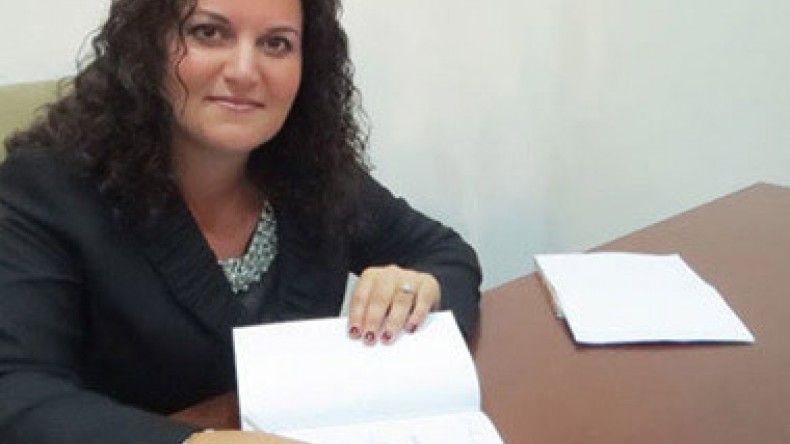
Anne Turcotte-Astvatsaturyan’s book on Armenian refugees from Azerbaijan presented in NKR
Presentation of Anne Turcotte-Astvatsaturyan’s book was held in Nagorno Karabakh titled "Nowhere: The Story of exile", telling about refugees from Azerbaijan during the Karabakh conflict, "Caucasian Knot" reports.
As noted in the article, the author had depicted in the book her memories from her own diary, which describes the facts of persecution and killings of Armenians living in Azerbaijan from 1988 to 1992. The book was published in English edition with more than three thousand copies. According to the author, in February, the book has been presented in New York at the head office of the Armenian General Benevolent Union, and on 5 September in Yerevan. The book is planned to be published in Russian and Armenian, now they are seeking for sources to fund the publishing.
"I could never imagine that my daughter could perceive the tragedy that my family went through in that way. I always thought that children do not understand anything. I realized this only after having read the book that was already published. It hurts me to think that children, regardless of nationality, are affected by the fault of violent people, and I already know what they are going through it deeper than the adults think they do," Anne's father Norik Astvatsaturyan shared his impressions with the audience at the presentation.
"I was 10 years old when the events began in Baku. My family was forced to flee in fear of death. I was a witnessed the atrocities against Armenians, and at the same time I started to write a diary, describing my experiences. At age 14, when I was already in the United States, where my family emigrated to, I rewrote the diary into English," said Anna Turcotte-Astvatsaturyan. According to the author, while publishing the book, the editors felt that it is necessary to leave the work in childish style. "I think they were right. Children’s experience the reader feels stronger than the edited text of a professional," said Anna Turcotte-Astvatsaturyan.
According to her, many Americans are not familiar with the Karabakh issue and the events that took place in Baku. But after the publication of the book about the history of an Armenian family from Baku and the meetings held on this occasion, many people have begun to show a sincere interest. "When the Karabakh liberation movement started, we did not believe that that could be possible in the Soviet Union. But the massacres and killings of Armenians in Sumgait, Kirovabad (name of the Azerbaijani city of Ganja from 1935 to 1989 - edt. "Caucasian Knot"), in Baku and in other localities, have shown that the Armenians had no future in Azerbaijan," said Turcotte-Astvatsaturyan.
She noted that in recent years in the American society interest towards the events in Baku and the process of recognition of the independence of Nagorno Karabakh is growing.
"My husband and I are conducting a detailed work of informing the American population about it. We contributed to the adoption of a resolution to recognize the independence of Nagorno Karabakh in the state of Maine," noted the author, stressing that she has repeatedly made speeches and has shared her memories not only in various states of the US, but also in the American Congress. Sarasar Saryan, the head of the Karabakh Refugees NGO, noted that the book is unique for being the only fiction in English about the pogroms of Armenians in Baku.
"I have read the book, and I think that the story of one family, a personal story of the heroine and her actual evidence of crimes against Armenians in Baku, tells about all the refugees from Azerbaijan. Perhaps this book will help the international community to pay attention to the Armenian refugees, particularly those who settled in Nagorno Karabakh," Saryan said. He noted that the refugees in Nagorno Karabakh are deprived of international humanitarian aid, because the republic is not recognized by the international community. Saryan informed that since the beginning of the Karabakh events more than 100 thousand Armenian refugees from Azerbaijan have arrived in Nagorno Karabakh, most of them went to Armenia, many of them left abroad. "Today, in Nagorno Karabakh there are just over 20,000 refugees, most of them have unsolved social problems," Saryan said.
Newsfeed
Videos






























